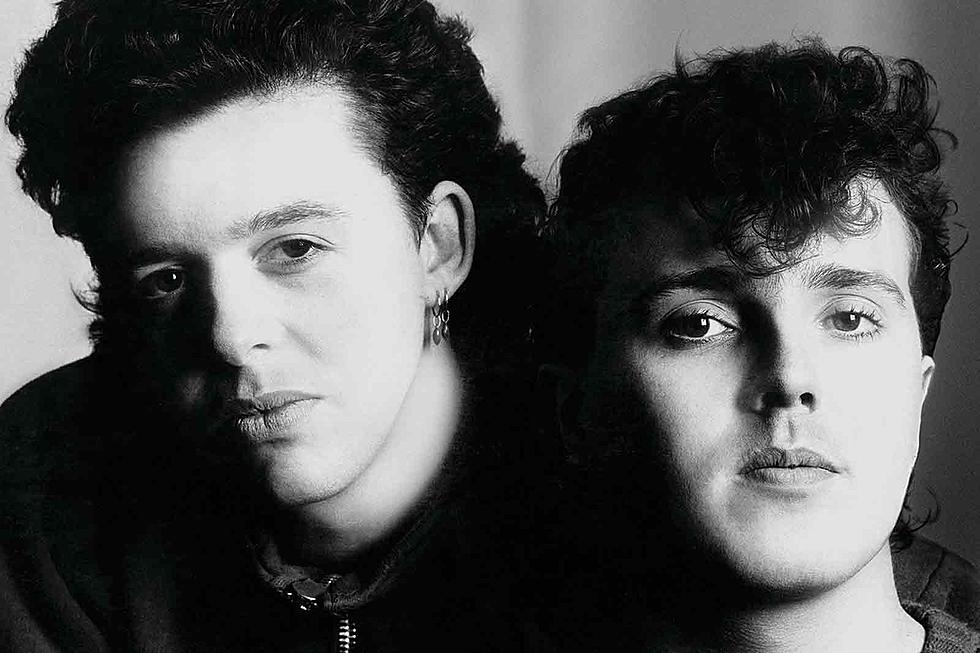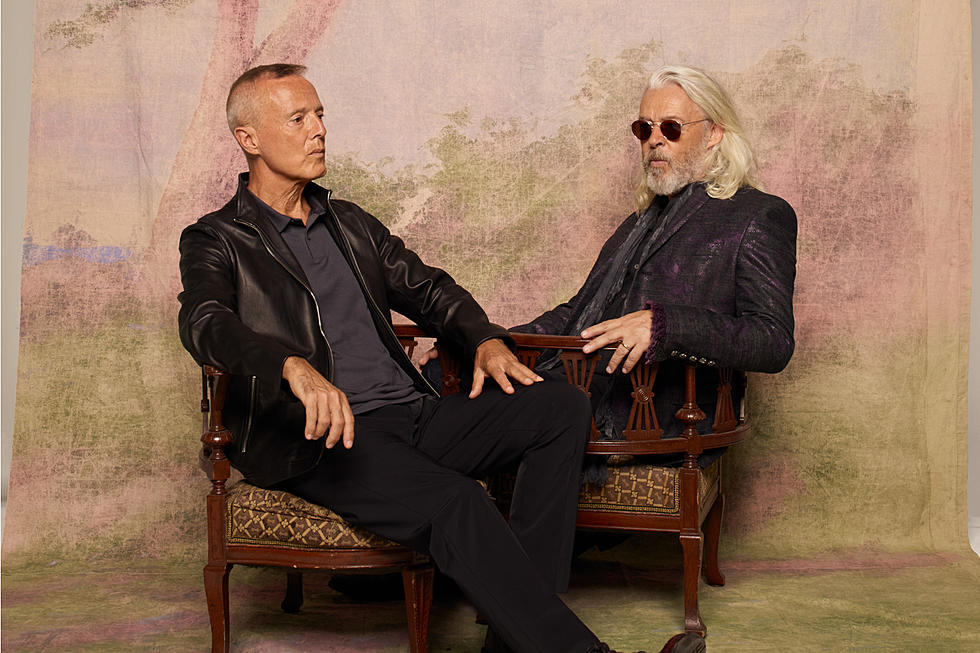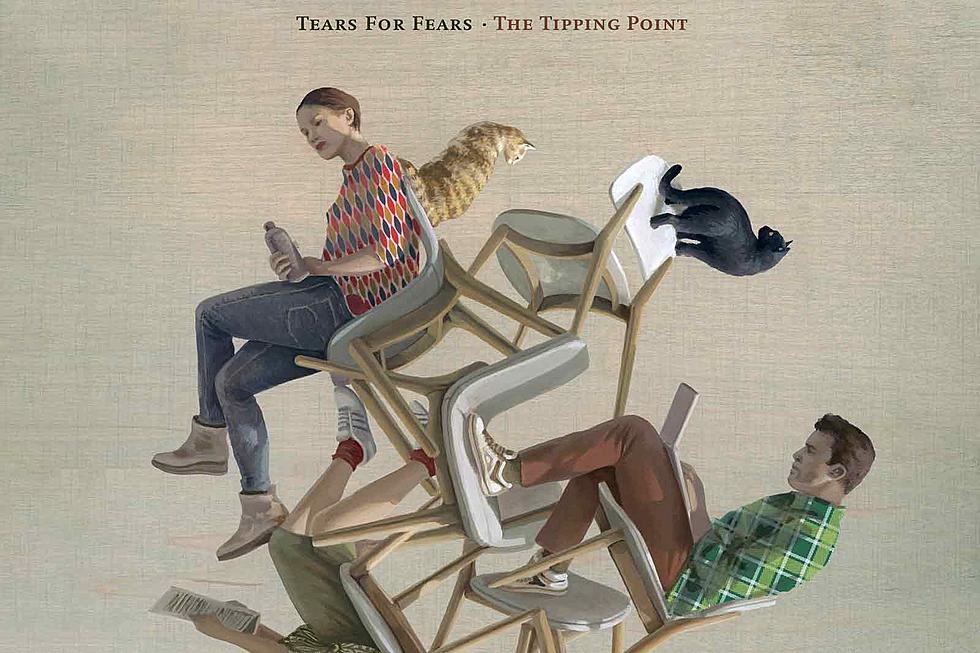
How Tears for Fears Hit the Big Time With ‘Songs From the Big Chair’
Before Tears for Fears released their second album, Songs From the Big Chair, on Feb. 25, 1985, they were barely known in the U.S. Not even MTV, which embraced plenty of synth-pop bands back then, paid much attention to 1983's The Hurting.
That first album did well in the duo's English homeland, reaching No. 1. And it managed to climb to No. 73 in the States, but that's nowhere near the Top 15 records released by fellow Second British Invasion groups Culture Club, Duran Duran and Eurythmics the same year. (The lone single to chart from The Hurting in the U.S., "Change," also made it to No. 73.)
When Songs From the Big Chair came out two years later, that Second British Invasion was on its way out as American artists – ranging from Michael Jackson and Madonna to Prince and various hair-metal bands – began edging their way onto MTV playlists and replacing the European synth sounds with more homegrown ones.
What chance did Tears for Fears have in this new climate? A way better one than anyone anticipated.
Watch Tears for Fears' 'Everybody Wants to Rule the World' Video
Things got underway more than six months earlier, when "Mothers Talk" was released as the upcoming album's first single in Roland Orzabal and Curt Smith's U.K. homeland. (Only the duo's faces were featured on the LP cover, even though the group technically included two other members at the time.) It fell short of the Top 10 showings of The Hurting's final three singles there. Big Chair's second pre-LP single, "Shout," fared better – making its way into the Top 5 overseas.
Then "Everybody Wants to Rule the World" was released in the U.S. in March 1985. It wasn't long before Songs From the Big Chair – and Tears for Fears – found a new audience, thanks to the song's percolating synth, which runs throughout the track, and the overall catchiness of both the verses and chorus. For most American listeners, this was their first exposure to Tears for Fears, and they couldn't have picked a more radio-friendly song as their introduction.
It was miles away from the moody and gloomy tone, not to mention the name, of their debut album. Songs From the Big Chair shared many of its traits – the LP's title was based on the 1976 TV movie Sybil about a woman with multiple personalities, and "Shout" referenced the primal-scream therapy popularized by Arthur Janov, the psychotherapist who came up with the concept behind the band's name – but they were mostly covered in accessible and glossy pop hooks this time.
Watch Tears for Fears' 'Shout' Video
By adapting a more mainstream sound on the album, Tears for Fears were suddenly everywhere. MTV put their videos in heavy rotation, "Everybody Wants to Rule the World" rocketed up the chart and made it to No. 1 for two weeks and "Shout" followed three months later and stayed at the top for three weeks.
Three months after that, another single, "Head Over Heels," shot to No. 3. And then, more than a year after "Everybody Wants to Rule the World" came out, "Mothers Talk" – which was originally released as the album's first single in the U.K. back in summer 1984 – made its debut as a U.S. single and climbed to No. 27.
All of this radio activity boosted Songs From the Big Chair to No. 1 for five weeks. It's since sold more than 5 million copies in the United States, adding to a larger worldwide tally spurred by various No. 1 singles across the globe. (Oddly, the LP stalled at No. 2 in the U.K., where The Hurting had no problem making it all the way to the top.)
Watch Tears for Fears' 'Head Over Heels' Video
The album became a mid-'80s milestone, joining records by fellow Brits Wham!, Phil Collins and Dire Straits that also went to No. 1 in 1985. Each benefited from MTV play and hit singles, but only Tears for Fears' was rooted in the synth-pop that dominated so many U.K. playlists a few years earlier.
It also helped that Songs From the Big Chair unwound like an actual album, complete with a huge opening track ("Shout"), an epic closer (the nearly seven-minute "Listen") and thematic melodic ties that string together a few of the songs (the mostly instrumental "Broken," the closest the record gets to a tough rock 'n' roll track, even makes a return appearance at the end of "Head Over Heels").
And it seems like Orzabal and Smith are making some Big Statements about isolation, pain and the usual lineup of goth themes throughout, even if the carefully laid out synth-pop hooks are the main draw here. Decades after its bow, Songs From the Big Chair still sounds like a significant work of its genre and era.
Tears for Fears took a turn toward psychedelia for their next album, 1989's The Seeds of Love, which reached No. 1 in the U.K. but stalled at No. 8 in the U.S. The band's legacy carried over to the new century, when the 2001 cult movie Donnie Darko prominently featured two of its songs: a piano-based cover of The Hurting single "Mad World" plays over the final scene, while the band's original "Head Over Heels" accompanies a spectacular single-take sequence set in Donnie's high school.
It was a fitting intro for a new generation to their shared psychological landscapes, one the band navigated with surprising pop splendor.
Top 40 New Wave Albums
More From Ultimate Classic Rock









